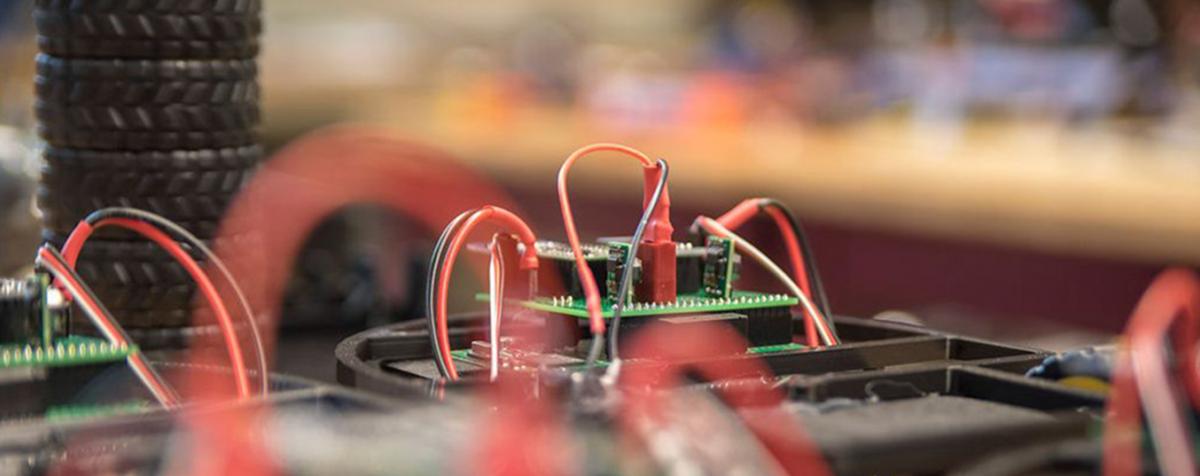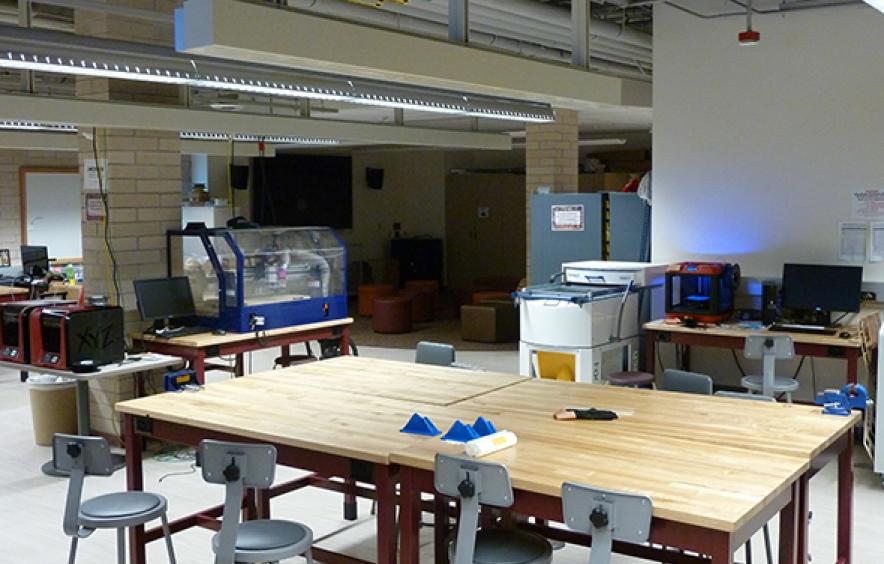Our MS in electrical engineering offers students the opportunity to enhance their understanding of specialized electrical systems such as search and rescue robotics, sustainable energy and power systems, unmanned vehicle systems and social emotive robots. Students can work alongside professionals in Colorado's electrical engineering industry to enhance their skills in analysis and design of engineering systems.
We provide a graduate education that emphasizes both multi-disciplinary and cross-disciplinary knowledge. Our faculty creates multi-disciplinary education programs that encourage both depth and breadth, and their research programs incorporate and account for technological trends in research, development and industry. Graduate students join the faculty in conducting cutting-edge basic and applied research in emerging disciplines developing novel and unique solutions to old and new problems and opportunities.
Program graduates have gone on to spearhead technological advancements across the public and private sectors in aerospace, utilities, transportation, military and manufacturing, to name just a few. Others have utilized their degrees to find jobs in management, IT, finance, logistics or technical publishing.
Featured Courses
ENGR 4545
Electric Power Economy
About this Course
This course covers economy aspects of electric power industry and the implications for power and energy engineering in the market environment. Cross listed with ENGR 3545.
ENGR 4200
Introduction to Nanotechnology
About this Course
The most important recent accomplishments so far in the application of nanotechnology in several disciplines are discussed. Then a brief overview of the most important instrumentation systems used by nanotechnologists is provided. The nature of nanoparticles, nanoparticle composites, carbon nanostructures, including carbon nanotubes and their composites is subsequently discussed. The course also deals with nanopolymers, nanobiological systems, and nanoelectronic materials and devices. The issues of modeling of nanomaterials and nanostructures is also covered. Multiscale modeling based on finite element simulations, Monte Carlo methods, molecular dynamics and quantum mechanics calculations are briefly addressed. Most importantly, students should obtain appreciation of developments in nanotechnology outside their present area of expertise. Cross listed with ENGR 3200.
ENGR 3730
Robotics
About this Course
Introduction to the analysis, design, modeling and application of robotic manipulators. Review of the mathematical preliminaries required to support robot theory. Topics include forward kinematics, inverse kinematics, motion kinematics, trajectory control and planning, and kinetics. Cross listed with ENGR 4730. Prerequisites: ENME 2520 and MATH 2060 or MATH 2200 or permission of instructor.
Application Information
Take the first step toward your academic career at the Ritchie School and start your application today.




